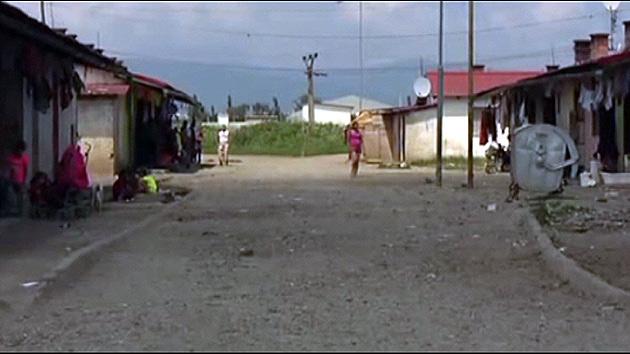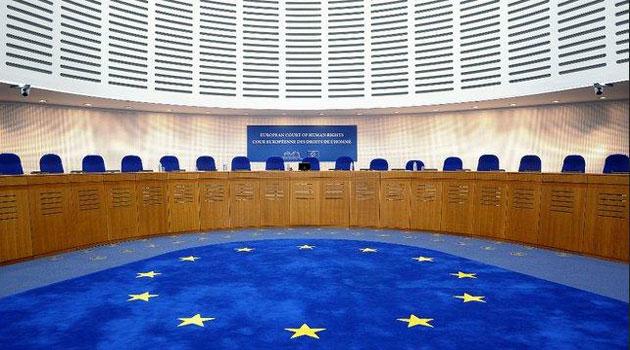European Court of Human Rights rules against Slovakia in case of police brutality against Roma

The European Court of Human Rights (ECtHR), which is based in Strasbourg, France, decided yesterday that Slovakia violated the rights of two people harmed by police officers using force during a raid on a Romani community in Moldava nad Bodvou, Slovakia in 2013 because the responsible state bodies did not sufficiently investigate the use of force, which is a violation of the country’s international law obligations in the area of human rights. The court awarded each of the injuried parties compensation in the fully requested amount of EUR 20 000.
The incident happened in June 2013, when more than 60 police officers raided the Romani community living on Budulovská Street in Moldava nad Bodvou and physically assaulted approximately 30 people, including children and women. The Counseling Center for Civil and Human Rights (Poradna), an NGO, provided pro bono legal representation for two men who testified they had been subjected to brute force by members of the police both during the raid and at the local police station to which they were conveyed and detained afterward.
Both men suffered injuries that took several weeks to heal as a consequence of the police officers’ conduct. “They harmed us for no reason,” plaintiff Róbert Rybář said.
“We had done nothing. On the day of the police raid they came to our homes, walked into our apartments without permission, and began beating us left and right,” Rybář said.
“I am very glad the court has confirmed that we told the truth and that it has decided the case this way. I consider this decision to be correct,” the plaintiff said.
“The court has published its decision on the same day that we in Slovakia commemorate the adoption of our Constitution. The institutions of the state should draw the connection that they must always proceed constitutionally, take decisions in accordance with the Constitution, and ensure that the rights and freedoms anchored in the Constitution are upheld,” said Vanda Durbáková, who is an attorney with Poradna.
“I believe that this decision will contribute to state bodies adopting systemic measures to ensure that each and every case of alleged police brutality is actually effectively investigated, and that they will also adopt preventive measures to ensure such cases simply never happen,” the attorney said. She filed a report of the suspected crime of abusing the powers of a public official in the name of one of the injured parties a few weeks after the incident.
The Inspection Authority rejected that report. A subsequent complaint that the Inspection Authority had proceeded unlawfully by not beginning an investigation was rejected by both the district and regional-level prosecutors.
A criminal investigation was eventually begun by the Inspection Authority several months after the incident, in January 2014, at the instruction of the Prosecutor-General. A detective at the Inspection Authority eventually stopped the investigation, the entire course of which had involved several serious deficiencies, but the supervising prosecutor then found no errors had been committed.
The injured parties then complained to the Constitutional Court of the Slovak Republic, which did not find that the state bodies had violated their rights. After exhausting all their available legal remedies domestically, in April 2018 the injured parties complained to the European Court of Human Rights that the rights guaranteed to them by the European Convention on the Protection of Human Rights and Fundamental Freedoms had been violated.
The ECtHR has now upheld their complaint. The court decided that the responsible state bodies violated the plaintiffs’ right to protection from police brutality as well as their right to an effective investigation of that violence, including the investigation of any possible racial motivaion behind the preparation of the police action.
By failing to correctly investigate the allegations of police brutality, the state violated the plaintiffs’ guaranteed right to protection from inhuman or degrading treatment or punishment as per Article 3 of the Convention, both procedurally and substantially, and also violated Article 14 of the Charter, which bans all discrimination with respect to the enjoyment of the rights and freedoms guaranteed by the Charter, precisely because the state bodies did not sufficiently investigate the possible racial motivation behind the very preparation of the police raid. The court emphasized in its decision that the responsible state bodies did not sufficiently explain whether the use of force by police had been proportionate, as well as the fact that the criminal investigation by the Inspection Authority was not begun until several months after the incident, which may have had a negative impact on the effectiveness of the entire investigation.
The court has awarded each plaintiff compensation of EUR 20 000 and reimbursement of the costs of the proceedings. The judgment has yet to take effect and could be appealed to the Grand Chamber.
